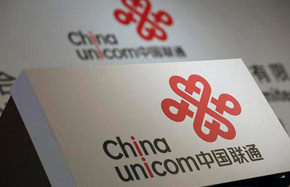Beijing will defend lawful economic interests




The Ministry of Commerce expressed its strong discontent on Monday with the United States' move to initiate a 301 investigation against China, arguing the US neglected World Trade Organization rules and imposed unilateral acts and unfair trade protectionism.
China will take all the appropriate measures to defend the country's lawful interests, and the US should respect the facts and act in a prudent manner, the ministry said in an official statement.
It is irresponsible and groundless to launch the investigation examining China's intellectual property policies and practices under Section 301 of the Trade Act of 1974, particularly under current global economic setting, the ministry said.
China and the US have been making concrete progress in trade and investment talks since the top leaders of the two countries met earlier this year.
"But the investigation this time has sent a wrong signal... and it could trigger resolute opposition from both the US business community and international community," according to the ministry's statement.
Wei Jianguo, vice-president of Beijing-based China Center for International Economic Exchanges, said China must be aware of the fact that once the US starts to adopt trade protectionism measures to relieve its trade deficit with China, it may come with more unfair and unilateral practices against Chinese products and companies sooner or later.
"The Chinese authority must pay enough attention to this (serious possibility).... If no effective actions were taken to tackle trade protectionism, then similar unfair practices will mount on China," Wei said.
After years of technology accumulation, merger and acquisitions activities in overseas markets, neither Chinese governments of all levels nor local companies have forced their foreign commercial counterparts to transfer their patent technologies, as it is fairly unnecessary now, according to Zhou Shijian, a senior researcher on China-US trade relations at Tsinghua University in Beijing.
Zhou said the ongoing revitalization of the manufacturing sector in the US will intensify the existing competition with China in high-end industrial segments, such as telecommunications equipment and offshore engineering products. The economic ties between the countries are slowly switching to competition-oriented, from being complementary.
"I hope the China-US relationship, as a whole, will not be hampered.... I suppose we can make the pie bigger and sort things out one by one," Wei said.
Chad Bown, a senior fellow at the Peterson Institute for International Economics, said that US trading partners have become increasingly unhappy with such an "aggressively unilateral" approach, with the US government acting as police force, prosecutor, jury and judge at the same time.
He said a decision to trigger a Section 301 action is problematic because it would provide additional fuel to the already simmering argument that the Trump administration is undoing the US commitment to rules-based trade and decades of work to establish international cooperation.
He said a Trump decision to operate outside of the rules will spur China to follow suit.
Section 301 allows the US government to unilaterally impose tariffs or other trade restrictions to protect its industries.





















